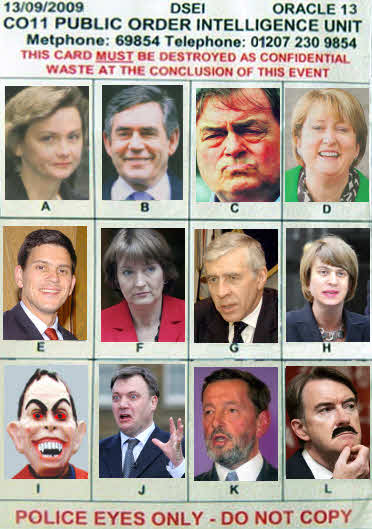|
Who'd have thought we had our own Secret Police units? The Association of Chief Police Officers runs 3 secret police organizations for the purpose of keeping tabs on the nation's "domestic extremists": Vehicles used by protesters are tracked using the national system of automatic number plate recognition (ANPR) cameras. Such vehicles are subjected to regular harassment stops for no reason which is evident to the owner. When challenged, the police officers making the harassment stop are allowed to lie about the reason for the stop. Members of the public do not have to commit a crime to attract the attention of the NPOIU – all they have to do is attend perfectly legal public meetings, take an interest in planning decisions in favour of New Labour clients or government projects or otherwise attempt to hold the state machine to account. Their records are stored side-by-side with those of people who take part in protests and demonstrations ranging from 'peaceful' direct action and civil disobedience to violent public disorder. Images of NPOIU's "domestic extremists" are collected on "spotter cards", which are handed out to the police officers attending demonstrations and events which the police deem likely to attract domestic extremists. These cards have a "Burn before reading" status to prevent them from falling into the hands of the general public.
All 3 secret police units are untroubled by such minor considerations as statutory accountability. Their original brief was to deal with dangerously violent animal rights extremists, but they now concentrate on anyone and any group opposed to government policy or the activities of the government's client companies. ACPO will not disclose exactly how many names are stored in the NPOIU databank, but admits there are files and photographs for tens of thousands of people.
|
 |  |


